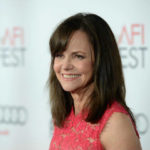This Biography is about one of the best Physicist Sally Ride including her Height, weight,Age & Other Detail…
| Biography Of Sally Ride | |
| Real Name | Sally Ride |
| Profession | Astronauts, Physicists |
| Nationality | American |
| Personal Life of Sally Ride | |
| Born on | 26 May 1951 |
| Birthday | 26th May |
| Died At Age | 61 |
| Sun Sign | Gemini |
| Born in | Los Angeles, California, U.S. |
| Died on | 23 July 2012 |
| Place of death | La Jolla |
| City | California |
| Grouping of People | Lesbians |
| Family Background of Sally Ride | |
| Father | Dale Burdell Ride |
| Mother | Carol Joyce |
| Siblings | Karen Ride |
| Spouse/Partner | Steven Hawley |
| Education | Stanford University (1978), Stanford University (1975), Stanford University (1973), Swarthmore College |
| Awards | 2006 – The NCAA’s Theodore Roosevelt NASA Space Flight Medal |
| Personal Fact of Sally Ride | |
|
Sally Ride was an American physicist and astronaut who achieved iconic status by becoming the first American woman and third overall to travel to space. Although she was interested in science from a very young age, tennis was actually her first love. She made a brave decision to quit her studies at Swarthmore College to try a career in professional tennis. However, after being unable to make any major inroads in her tennis career, she returned to science with a renewed vigor. Ride spent the next few years accumulating degrees and knowledge, which would help her get selected for NASAs space program. She successfully completed an intense training and joined NASA for what would become a historic mission. In a span of four years, Ride was selected to travel in a space flight, which she embraced gladly. Her journey in the Challenger shuttle served as an inspiration for millions of women worldwide. Ride moved on to have a stellar career, going to space once more in the process, and garnering a host of awards and honours. She was involved in a lot of charity work during her older years, most of which was dedicated to girls and young women. Looking back at her incredible career, it would indeed be fitting to state that sports loss was science’s gain. |
|




